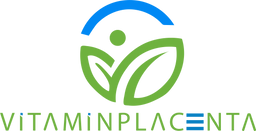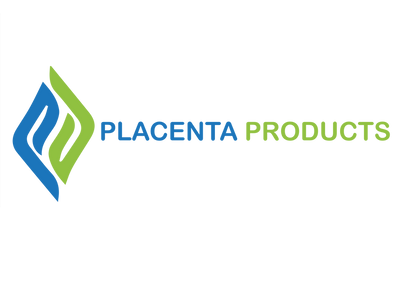Health Benefits of Eating Placenta
Placenta Consumption Benefits
 Johnson et al.
Johnson et al.Direct benefits to the body have been studied in China for many years
Traditional Chinese Medicine
Traditional Chinese medicine has included placenta consumption, called Zi He Che, for more than 1,400 years to treat a variety of conditions, including infertility, asthma, arthritis, liver disorders, and immune system issues and to enhance milk production in postpartum women (Beacock, 2013; Cremers & Low, 2014; Gavalan, 2014; Maraccini & Gorman, 2015).
Vitamin Placenta has studied these works and believes that there are great benefits from placental supplementation, and many of these benefits come from the Chinese. What they did is similar to what we call placenta encapsulation today, and although we do not make direct claims, many studies show that placental supplementation does in fact help with liver disorders, immune issues, and infertility. Additionally, factors within the placenta can greatly benefit arthritis, and for mothers who just gave birth, there are many studies showing enhanced milk production as a consistent benefit experienced after placental supplementation.

Eating Placenta
Today many women consume placenta for a variety of reasons, so more modern-day research has been conducted, and the results show real benefits for a variety of symptoms
With the influence of media and an emphasis on healthy eating and natural living, more women are considering eating placenta, and surprisingly, men and other family members have begun partaking in this (Coyle et al., 2015; Selander et al., 2013).
This is to show that placental supplementation isn’t just for women, as men too can benefit from the nutrients within the placenta. And why not? There are so many advantages to placental supplementation, that why shouldn’t men get in on the action? That is why Vitamin Placenta was created equally for men and women. It is safe for both sexes to take, and offers real benefits to everyone, which means that as a supplement it is not limited to just women. That is why we created Vitamin Placenta for men in mind as well, and have testimony from men that it works well to help them for the same reasons why a woman might take it.

Placenta Benefits
Significant research about the benefits of placenta encapsulation range from nutritional value, pain relief, prevention of postpartum hemorrhage, improved milk production, and hormonal replacement (Selander et al., 2013). Other potential benefits may include improved mother–infant interaction, suppression of postpartum pseudopregnancy, and increased iron levels (Cremers & Low, 2014). Advocates claim that placenta consumption restores necessary fats, proteins, hormones, and nutrients believed to be depleted during pregnancy and childbirth (Marraccini & Gorman, 2015). This work has been demonstrated through studies in humans.
Corticotropin Releasing Hormone (CRH)
Placental corticotropin-releasing hormone exists in large amounts in the body during labor but proves deficient during the postpartum period. Supporters of placentophagia believe that the placental corticotropin-releasing hormone found in the placenta will increase levels in the postpartum mother after placental consumption, leading to decreased stress levels and improved mood. This may be why many women today report benefits from placental supplementation.
In addition, it is believed that vitamins B12 and B6, folate, and iron found in placental tissue may treat any deficiency that can occur in the postpartum period, thereby placenta reduces depression (Beacock, 2012; Marracini & Gorman, 2015).

Placenta Extract
Through all this scientific work we see how placental extract can help restore your body to it’s youthful healthy nature. It can help support you during a difficult time, perhaps when experiencing increased stress at home or at work. Placenta can significantly elevate mood, something many women have attested to, and the research points to that as well. It can also increase energy and rejuvenate the body. Overall it helps with the mind, and the body, making it the most complete vitamin to date. Many celebrities have marveled at the benefits of eating placenta.
Vitamin Placenta has been created to take advantage of all of this!

Benefits of Placenta Supplements
Placenta Supplement
Vitamin Placenta is the first supplement of it’s kind, made in the US, for men and women to experience the benefits of this amazing organ. It has been studied and used in China for over one thousand years, and is only now being discovered through Western medicine. The discoveries point to it helping with energy levels, mood, stress, and depression. The ways it helps with these things are different, as a variety of different research groups point to different ways as this can happen, but they all say that it does it, they just have different theories as to how.
If you want to help your body feel and look years younger, experience more energy throughout the day, reduce your stress, increase your vitamin intake, reduce depression, improve your mood, treat infertility, baldness, liver and kidney disease, impotence, arthritis, reduce pain, and boost your immune system then you should try this one-of-a-kind supplement, made and available to you for the very first time ever. Vitamin Placenta was created to help benefit the brain, body and beauty. Placenta prevents hair loss and is a natural supplement for hair growth. It helps reduce wrinkles and fortify skin. It reduces anxiety and depression. It is also an effective treatment for chronic pain. Formulated in the United States, Vitamin Placenta has been made to take advantage of all of the beneficial aspects of placental consumption and bring them to you through a specialized extract of placental tissue which can benefit both men and women.
Don’t you owe it to yourself to give this a shot, and achieve the best life you could possibly live? You can do so now, naturally, and safely. Placenta is an organ with untapped potential, with healing properties that go back over one thousand years, which has stood the test of time. As more research pours in, you can rest assured that we will stay on top of it, and continue to bring you the highest quality supplement ever made. Until then, we invite you to try our very own, Vitamin Placenta, the most complete vitamin and supplement ever created, based on scientific research, and available in limited supply for the first time ever.
If you want to skip ahead to learn about all of the benefits of eating placenta then click on this article since it covers a variety of different topics from placentophagy, pain-relief, beauty benefits, skin benefits, and of course anti-aging benefits, something many celebrities' love eating placenta for, not to mention reduction of depression, anxiety and stress!
References:
Beacock, M. (2013). Does eating placenta offer postpartum health benefits? British Journal of Midwifery,20(7). Doi:10.12968/ bjom.2012.2.7.464
Cremers, G. E., & Low, K. G. (2014). Attitudes toward placentophagy: A brief report. Health Care for Women International, 35(2), 113–119. Doi:10.1080/07399332.2013.798325
Galvan, J. A. (2014). Th ey do what? A cultural encyclopedia of extraordinary and exotic customs from around the world. Santa Barbara, CA: ABC-CLIO.
Marraccini, M. E., & Gorman, K. S. (2015). Exploring placentophagy in humans: Problems and recommendations. Journal of Midwifery & Women’s Health, 60(4) 371–379. Doi:10.1111/ jmwh.12309
Coyle, C. W., Hulse, K. E., Wisner, K. L., Driscoll, K. E., & Clark, C. T. (2015). Placentophagy: Therapeutic miracle or myth? Archives of Women’s Mental Health, 18(5), 673–680. doi:10.1007/ s00737-015-0538-8
Selander, J., Cantor, A., Young, S. M., & Benyshek, D. C. (2013). Human maternal placentophagy: A survey of self-reported motivations and experiences associated with placenta consumption. Ecology of Food and Nutrition, 52(2), 93–115. doi:10.1080/03670244.2012.719356
Cremers, G. E., & Low, K. G. (2014). Attitudes toward placentophagy: A brief report. Health Care for Women International, 35(2), 113–119. doi:10.1080/07399332.2013.798325
Beacock, M. (2013). Does eating placenta offer postpartum health benefits? British Journal of Midwifery, 20(7). doi:10.12968/ bjom.2012.2.7.464
Marraccini, M. E., & Gorman, K. S. (2015). Exploring placentophagy in humans: Problems and recommendations. Journal of Midwifery & Women’s Health, 60(4) 371–379. doi:10.1111/ jmwh.12309
//

